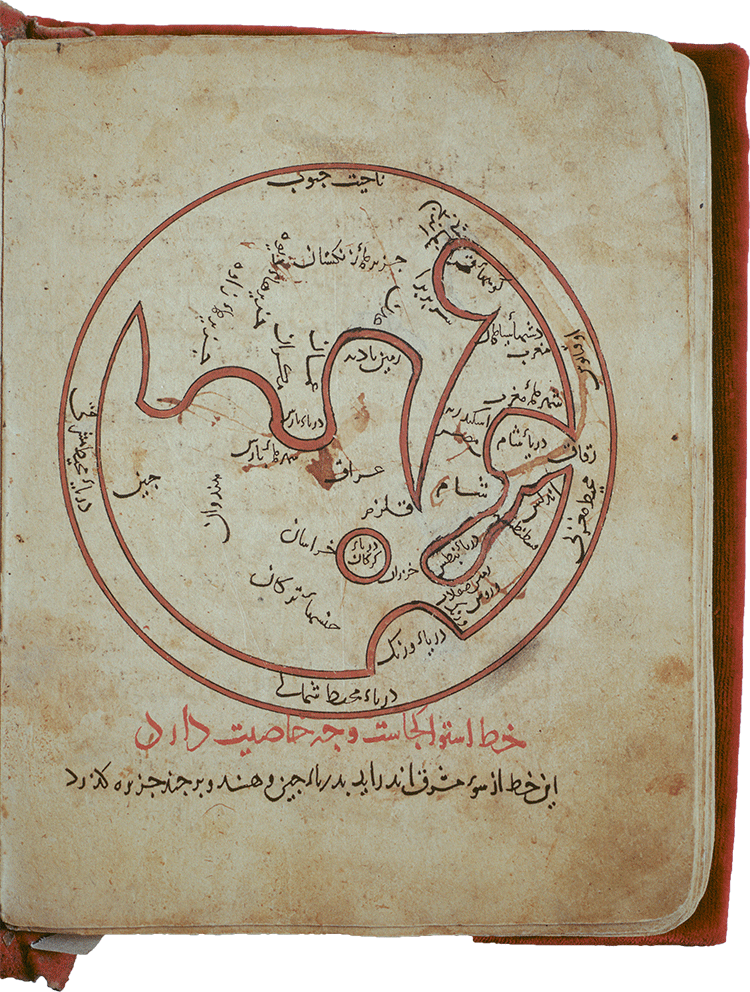by S. FREDERICK STARR
 A map of the world illustrating a 14th-century manuscript of al-Biruni’s ‘Elements of Astrology’
A map of the world illustrating a 14th-century manuscript of al-Biruni’s ‘Elements of Astrology’
Abu Raihan al-Biruni, an Islamic scholar from Central Asia, may have discovered the New World centuries before Columbus – without leaving his study.
For more than a century an army of scholars, enthusiasts and outright eccentrics has delved into the question of who discovered America. Some of the claims are truly exotic, with fanciful reportage on ancient Phoenicians in Rhode Island or Chinese from the Middle Kingdom in the Bay Area. Back in the 1950s the colourful Norwegian ethnographer and adventurer Thor Heyerdahl contended that Peruvians in sailboats made of balsa wood were commuting back and forth between the Americas and Polynesia centuries before Columbus set sail.
Leaving aside patently absurd theories, there are a number of serious claimants for the title. First comes Zuan Chabotto (c.1450-99), the Venetian navigator and explorer. His claim turns on the fact that Columbus did not reach the American mainland until 1498, while he touched the North American shore a full year earlier. That he had set sail from England caused him to be remembered in the Anglophone world as John Cabot and shifted bragging rights from Venice to the ‘Sceptred Isle’. Then it turned out that, while Cabot found investors in Bristol and received a patent from Henry VII, his principal financial backer was an Italian banking house in London. The laurels shifted back to Italy.
History Today for more
